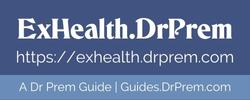Not all heart problems manifest themselves through clear warning signs, like a sudden pain in the chest, which is why a lot of them go undiagnosed. This can easily become a problem, since most health conditions that are not diagnosed early on may progress into a more advanced stage and may become more difficult to treat.
So how do you really know you might have an underlying heart problem? It turns out that there are some factors and telltale symptoms you can watch out for.
Understand Your Risk Factors

There are major factors that contribute to your risk of getting a heart disease. Although they may not guarantee the presence of such condition, it is important to get ahead of your health by knowing your chances of getting one.
There are major risk factors that you may be born with, and, therefore, cannot be changed. This includes your age, sex, and race. Majority of people who die of a heart attack are males who are sixty-five years old or older, and they are mostly African Americans, rather than Caucasians.
However, there are risk factors that can be modified, treated, or controlled. For instance, people who smoke are at much higher risk for coronary heart disease than those who don’t. This also goes to people who have high blood cholesterol levels, high blood pressure, diabetes mellitus, obesity, and an inactive lifestyle.
Now that you already have an understanding of risk factors that may contribute to heart disease, the best thing to do is to have regular consultations with your doctor, especially if you are at high risk of acquiring such problem. You can also look out for particular signs and symptoms that may indicate a heart problem.
Chest Discomfort
Chest discomfort, or feeling pain, pressure, or tightness in the chest, may be the most common sign that your heart is in danger, and it may be different for everyone. It may either last for a few minutes or longer or happen whether one is at rest or doing something physical. Seek emergency help right away if such symptom does not go away even after a few minutes or if it becomes more intense by the minute.
Shortness of Breath

Shortness of breath is a common symptom not only in people with lung conditions but also among people with heart problems. Since both the heart and the lungs are responsible for transporting oxygen to the rest of the body and removing carbon dioxide, having problems with these organs can easily affect one’s breathing.
If shortness of breath comes on suddenly and becomes so severe that it affects your ability to function, seek emergency medical attention right away, especially if such symptom is accompanied by chest pain, nausea, or fainting. At the hospital, your vital signs will be checked, including your blood oxygen saturation levels, through the use of a Nonin pulse oximeter.
Abnormal Heartbeat
Having abnormal heartbeats, or heart arrhythmia, may be an obvious indicator of a heart problem. You may notice these symptoms when your heart is beating too slowly, too quickly, or in irregular patterns.
Specifically, you may feel a fluttering in your chest, either a slow or racing heartbeat, chest pain or discomfort, dizziness, lightheadedness, fainting or near fainting, and shortness of breath. If you have been experiencing these symptoms more often, it’s best to schedule a consultation with your health-care provider right away.
Fever and Fatigue

Having a fever, unexplained weakness or fatigue are common symptoms of a heart infection or of endocarditis. This infection affects the inner membranes of the heart’s valves and chambers. Although fever and weakness may indicate other health conditions entirely, it is still important to have these symptoms checked, especially if they include accompanying symptoms such as shortness of breath, persistent dry cough, swelling in the abdomen or legs, changes in your heart rhythm, and unusual spots or rashes in the skin.
Keeping Heart Problems at Bay
You can help prevent the different types of heart diseases by making certain changes in your lifestyle to reduce your risk. For starters, it may be time to quit smoking (if you do smoke) and to keep your blood pressure, blood glucose, and cholesterol at normal levels through proper diet and exercise.
More importantly, always have regular checkups to the doctor not only to keep tabs on your health but also to detect possible health conditions at the earliest possible time.
Article Submitted By Community Writer




